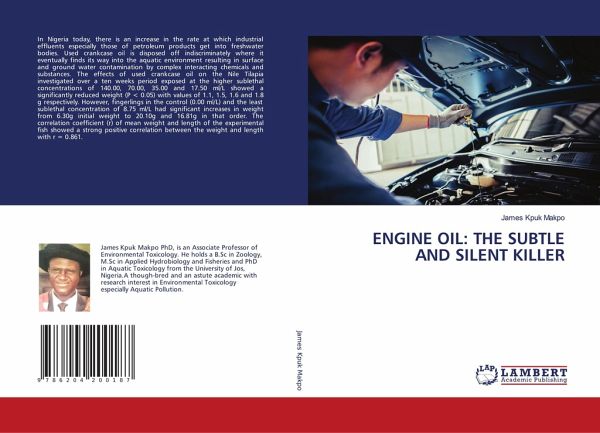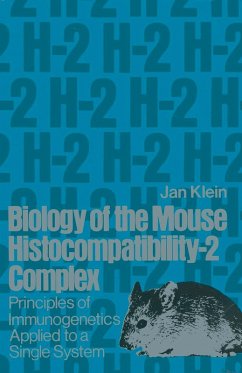
ENGINE OIL: THE SUBTLE AND SILENT KILLER
Versandkostenfrei!
Versandfertig in 6-10 Tagen
41,99 €
inkl. MwSt.

PAYBACK Punkte
21 °P sammeln!
In Nigeria today, there is an increase in the rate at which industrial effluents especially those of petroleum products get into freshwater bodies. Used crankcase oil is disposed off indiscriminately where it eventually finds its way into the aquatic environment resulting in surface and ground water contamination by complex interacting chemicals and substances. The effects of used crankcase oil on the Nile Tilapia investigated over a ten weeks period exposed at the higher sublethal concentrations of 140.00, 70.00, 35.00 and 17.50 ml/L showed a significantly reduced weight (P < 0.05) with value...
In Nigeria today, there is an increase in the rate at which industrial effluents especially those of petroleum products get into freshwater bodies. Used crankcase oil is disposed off indiscriminately where it eventually finds its way into the aquatic environment resulting in surface and ground water contamination by complex interacting chemicals and substances. The effects of used crankcase oil on the Nile Tilapia investigated over a ten weeks period exposed at the higher sublethal concentrations of 140.00, 70.00, 35.00 and 17.50 ml/L showed a significantly reduced weight (P < 0.05) with values of 1.1, 1.5, 1.6 and 1.8 g respectively. However, fingerlings in the control (0.00 ml/L) and the least sublethal concentration of 8.75 ml/L had significant increases in weight from 6.30g initial weight to 20.10g and 16.81g in that order. The correlation coefficient (r) of mean weight and length of the experimental fish showed a strong positive correlation between the weight and length withr = 0.861.












